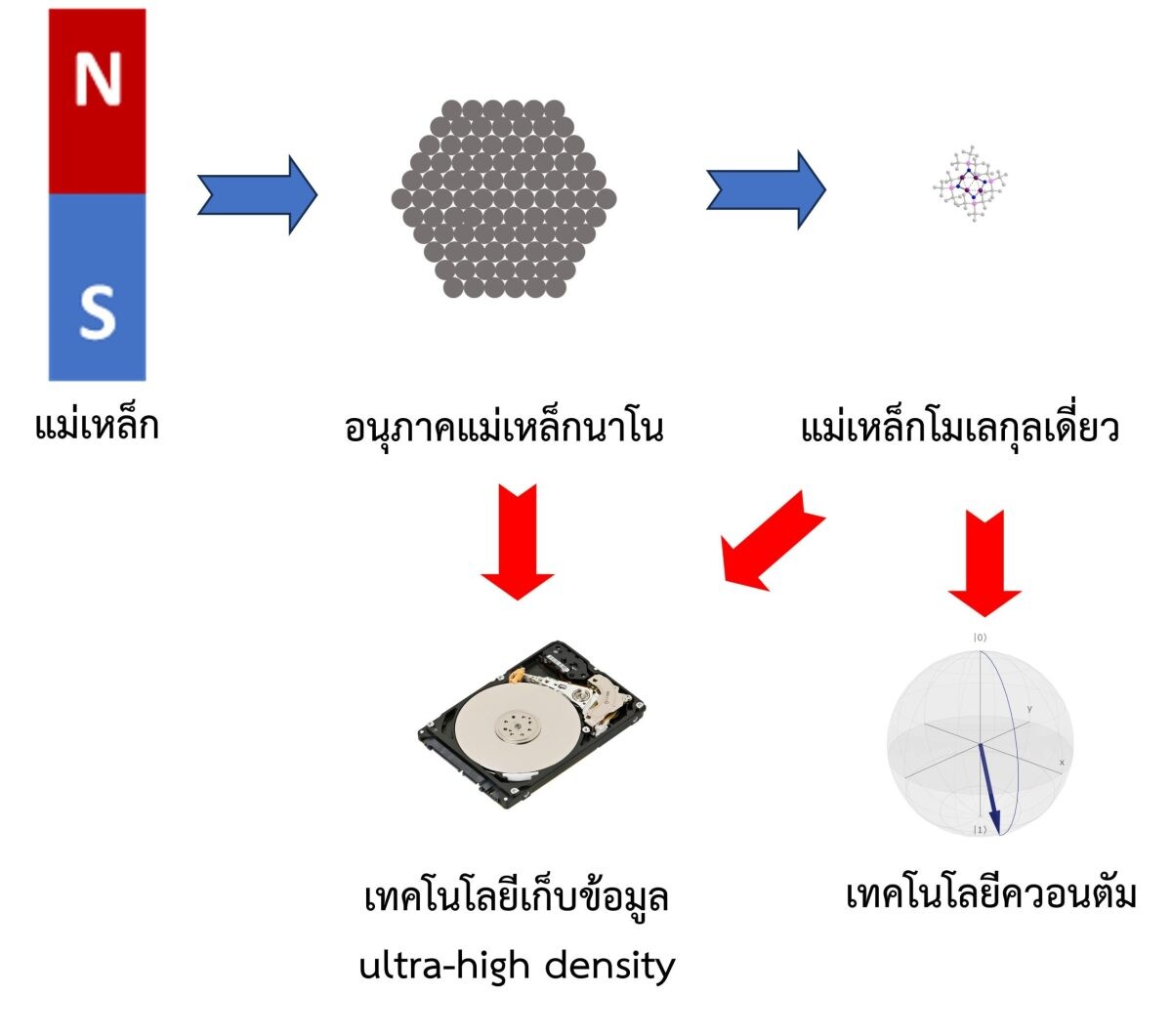From “QT1” (Quantum Technology Generation 1) in the early days to recognize and benefit from it “Quantum technology in the 20th century” has given rise to many modern electronic devices based on the technology. Such as transistors, which are components of computers. This makes managing huge amounts of data possible.
Nowadays, there is an increase in the ability to access and manage quantum technology in the “QT2” (Quantum Technology Generation 2) era of the 21st century, which has led to in-depth and widespread use, especially in business computing. Quantum will revolutionize information technology, science, and many innovations.
In Thailand, this is an important milestone in the national roadmap for quantum technology development from 2020 to 2029.
Lecturer Dr. Khitpakorn Chakrawit Lecturer, Department of Chemistry, Faculty of Science, Mahidol University is one of the prides of Mahidol University. From winning the 2024 National Research Award from the National Research Council of Thailand (NRCT), Good Thesis Award Category, Physical Sciences and Mathematics.
This innovative work has led to the development of transition metals into single-molecule magnets to enhance the storage capabilities of computer hard drives and quantum computing.
From research that wanted to reduce the size of nano-sized magnetic particles to become molecular-sized magnets. This will increase the storage potential of electronic data by up to 1,000 times, leading to the search for ways to increase the magnetic force within the molecule. Making molecular-sized magnets that typically require temperatures as low as -270°C can maintain their magnetic properties at higher temperatures.
Furthermore, the process of changing the magnetic polarity of a molecule has been used as a quantum manipulation. To build a powerful quantum computer
It is a research work conducted as a doctoral thesis at the University of California, Berkeley, USA, and was later published in international chemical academic journals such as the Journal of the American Chemical Society (JACS), Chemical Sciences, and Inorganic Chemistry. . etc.
Access to quantum computing technology will greatly increase Thailand's potential. Whether for technology, logistics transportation systems, research on new medicines, development of smart materials and protection of digital information security
Mahidol University is ready to do the duty “Earth Wisdom” as per the aspiration of Mahidol University to create and provide knowledge to enable “QT2” to be “Technological Heritage” for future generations.
Follow interesting news from Mahidol University at www.mahidol.ac.th


“Reader. Infuriatingly humble coffee enthusiast. Future teen idol. Tv nerd. Explorer. Organizer. Twitter aficionado. Evil music fanatic.”
